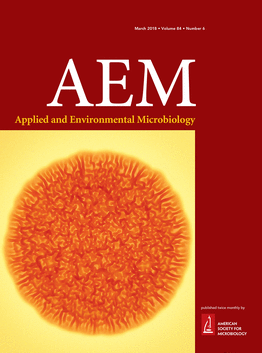 A biology journal has retracted a 2011 paper after the University of California, Los Angeles determined that the data in three figures “cannot be supported.”
A biology journal has retracted a 2011 paper after the University of California, Los Angeles determined that the data in three figures “cannot be supported.”
In February, the journal Applied and Environmental Microbiology retracted the paper, which explores efforts to engineer bacteria to convert plant biomass into biofuel.
Claudia Modlin, assistant director of UCLA’s Office of Research Policy and Compliance, told Retraction Watch that the university informed the journal about the issues last October, after reviewing the work.
The 2011 work was funded in part by a $5 million National Institutes of Health grant.
The paper’s corresponding author Robert Clubb told us that he began to suspect the data were problematic about two years ago, when a new graduate student took over the project. Clubb explained that his team:
… spent over a year trying to reproduce the results we had published. They then closely look at the data that had been acquired and realized that that the data had either been grossly misinterpreted or fabricated.
Modlin did not say if UCLA was conducting an investigation, citing “concerns about privacy and confidentiality.”
Clubb, a professor of biochemistry at UCLA, said he has concerns about the work performed by first author Timothy Anderson, a former graduate student in his lab who received a PhD from UCLA in 2013.
In 2015, Clubb retracted a 2012 paper in the same journal because the authors were:
… unable to reproduce the central finding of this paper (growth on biomass) after making repeated attempts during the past year.
Anderson is also first author on that 2012 paper. Clubb declined to provide further details about the issues with the data, citing “legal reasons.”
The retraction notice for “Assembly of Minicellulosomes on the Surface of Bacillus subtilis” does not provide additional insights, but indicates that Anderson and middle author Xiao Wen Jiang could not be reached to approve the retraction. We emailed Anderson via his UCLA email, and contacted the landscaping company in Missouri where he now works, but have not yet received a response.
The 2011 paper has been cited 26 times, according to Clarivate Analytics’ Web of Science, including by the retraction notice.
Aside from the two now-retracted papers, Anderson and Clubb have co-authored one other article. Clubb told us that there will be “no more retractions.”
Like Retraction Watch? You can make a tax-deductible contribution to support our growth, follow us on Twitter, like us on Facebook, add us to your RSS reader, sign up for an email every time there’s a new post (look for the “follow” button at the lower right part of your screen), or subscribe to our daily digest. If you find a retraction that’s not in our database, you can let us know here. For comments or feedback, email us at [email protected].
Why are there concerns over privacy and confidentiality for “research” paid for by the taxpayers? Does Clubb still have his job? Does Anderson still have his PhD?